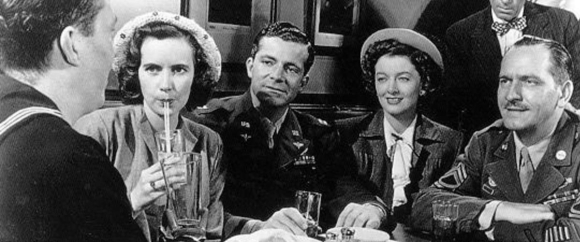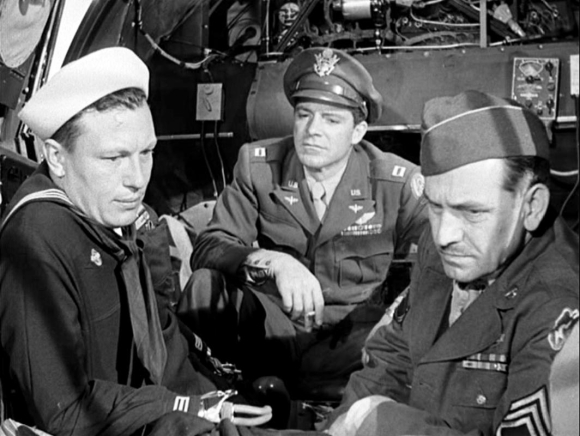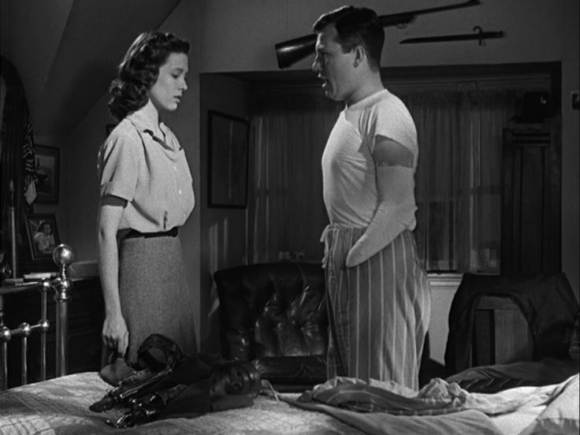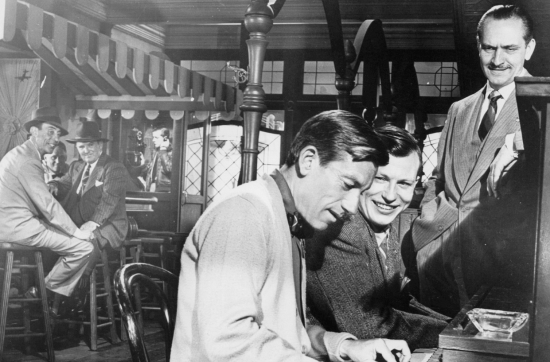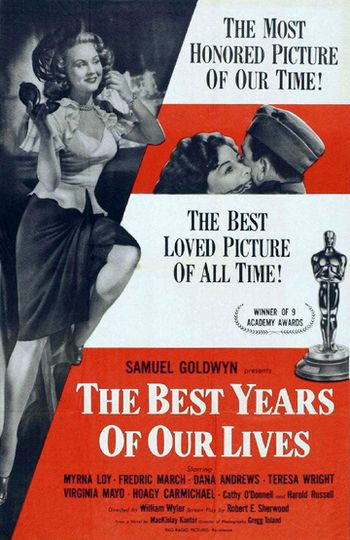 The underlying satirical nature of William Wyler’s post-war paean to American soldiers returning home from World War II lurks throughout this beloved drama.
The underlying satirical nature of William Wyler’s post-war paean to American soldiers returning home from World War II lurks throughout this beloved drama.
The winner of nine Academy Awards — including the only time an actor has won two Oscars for the same role — “The Best Years of Our Lives” is such a blatant example of American-produced propaganda that its blunt elements serve opposing purposes to its detailed context of approved social behavior, realities, and identities.
Samuel Goldwyn first commissioned the script from war correspondent MacKinlay Kantor, whose blank verse novella “Glory for Me” informed the finished product — written by Robert E. Sherwood. When Sherwood allows the story’s brimming social subtext to overflow with regularity, the complex scenes strike enduring dissonant chords that contradict every bit of gung-ho nostalgia and political brainwashing that the movie seems to parade.
Each of the film’s ex-military protagonists carries his battle scars differently. Emotionally insecure bombardier Captain Fred Derry (Dana Andrews) disregards his marriage to a local trollop. Rather, Fred woos Peggy (Teresa Wright), the vulnerable daughter of Sargent Al Stephenson, a 40-year-old soldier Derry meets on his way back to the same Midwest town, Boone City. Also present is Homer Parrish (Harold Russell), a Navy man who lost both hands in an explosion. Homer has since mastered use of the hooks that attach from below his elbows.
Economic realities are on prominent display.Well-off family man Sargent Stephenson takes refuge in alcohol to numb his post-war depression. His patient wife Milly (Myrna Loy) is her husband’s loyal keeper.
Al’s longtime mentor, and bank owner, Mr. Milton (Ray Collins) gives Al a promotion from his former desk job to “vice president in charge of small of loans” — “at a salary of $12,000 a year.”Mr. Milton comes to regret his generosity in light of Al’s favoritism toward fellow veterans with “no collateral.”
Al publicly breaks company rank at a dinner hosted by Mr. Milton. The inebriated civilian professes love for his bank before representing it as a generous investor “in the future of this country.” During the speech William Wyler keeps the camera on Al with a deep focus on Milly’s telling facial expressions that translate her husband’s intentionality to the other dinner guests. The distraction works, for the film audience at least. Still, Al Sharpton’s days of gainful employment at Cornbelt Trust Company may be numbered.
The scene that scratches the heavily music-queued movie sparks its inciting incident. Fred Derry works as a “soda jerk” at a local department store. A well-dressed gentleman wearing a ring on his left pinky orders a sandwich. Homer stops by for a chocolate sundae. The stranger wants to “ask a personal question.” Homer answers out of turn, giving his well-rehearsed explanation of how he uses his “hooks.” The stranger compliments Homer’s braveness before expressing an unconventional opinion of the war.
“You got plenty of guts. It’s terrible when you see a guy like you that had to sacrifice himself, and for what.”
Homer is confused.
“We let ourselves get sold down the river. We were pushed into war.” The “leftist” at the counter believes that “the Germans and the Japs had nothing against us.
They just wanted to fight the Limeys and the Reds.”The opinionated stranger talks about the American people being “deceived” into war by “radicals” in Washington.
A fight ensues that directly addresses everything the wounded soldiers have been hiding.


